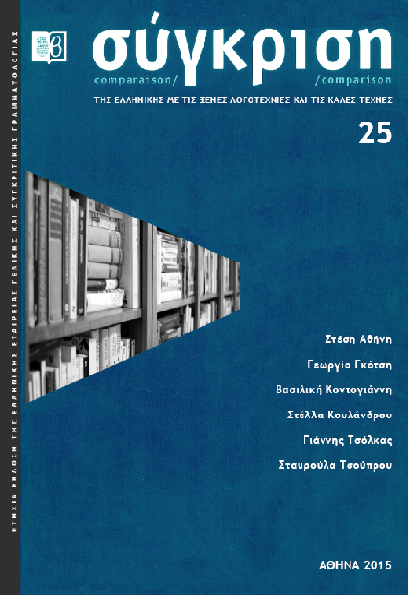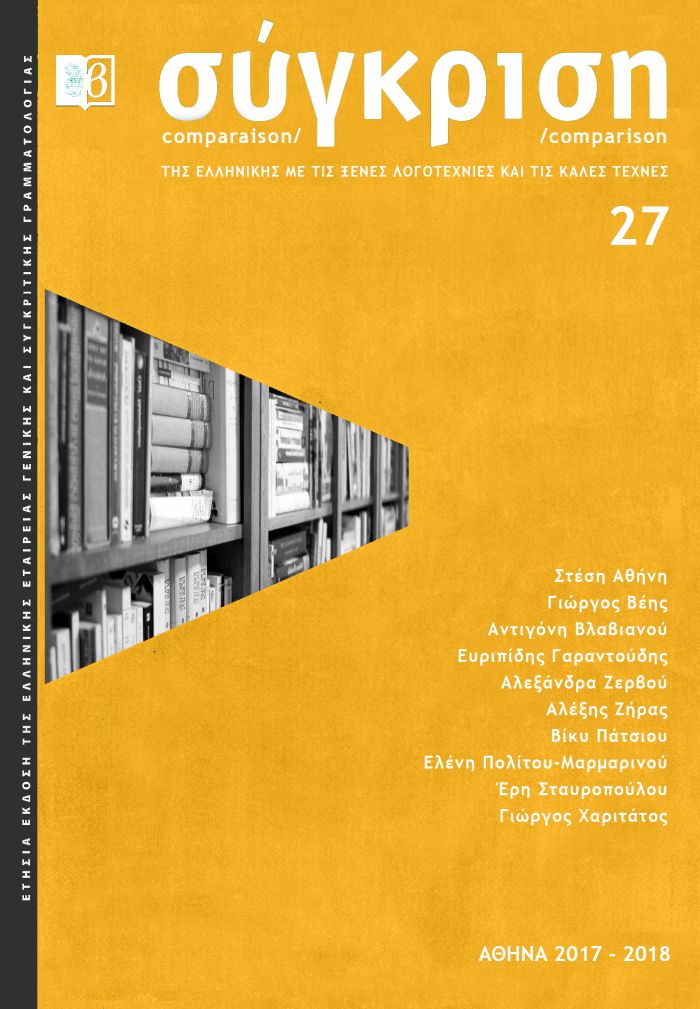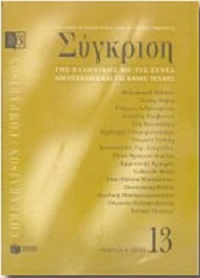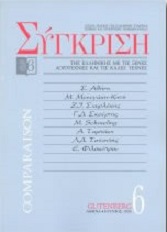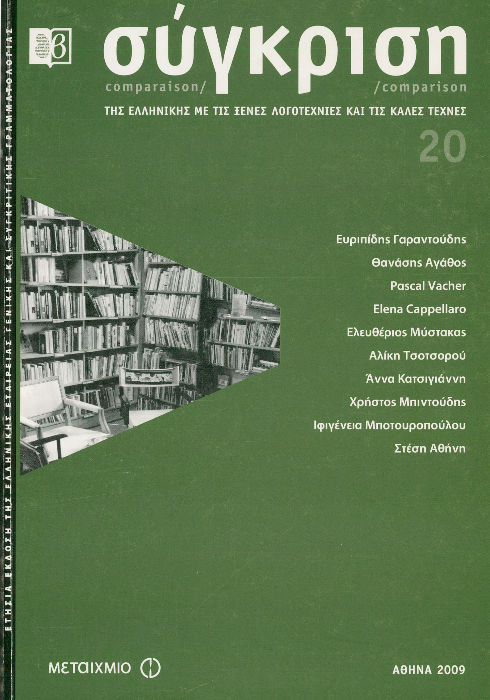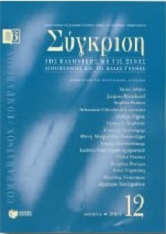Οι νεοελληνικές τύχες του Αλκιβιάδη ως το τέλος του 19ου αιώνα
Περίληψη
The beginning of the closer acquaintance of Modern Greek literature with Alcibiades’ forceful personality is located during the years of Greek Enlightenment, with the discovery of the world of History and the “return to the antiquity” through foreign texts, translated into Greek. Nevertheless, Alcibiades’ appearance as a literary character was delayed compared with his reach European literary fortunes. Alcibiades appears in 1837 through Alcibiades byAugustusGottliebMeissner, a translated “bildungsroman” from German, and half a century later through a second translation, from Italian this time, the homonymous FelicioCavallotti’s historical drama (1889). Examining closely these two texts and considering their presence in the source literatures as well as the terms of their reception in Greek it is concluded that Socrates’ disciple array with literary raiment served the ideological schema aiming at the strengthening of the relations between Modern Greek culture and antiquity and simultaneously the European family.
Λεπτομέρειες άρθρου
- Πώς να δημιουργήσετε Αναφορές
-
Αθήνη Σ. (2016). Οι νεοελληνικές τύχες του Αλκιβιάδη ως το τέλος του 19ου αιώνα. Σύγκριση/Comparaison/Comparison, 25, 1–22. https://doi.org/10.12681/comparison.8787
- Τεύχος
- Τόμ. 25 (2015)
- Ενότητα
- Άρθρα

Αυτή η εργασία είναι αδειοδοτημένη υπό το CC Αναφορά Δημιουργού – Μη Εμπορική Χρήση – Παρόμοια Διανομή 4.0.
Οι συγγραφείς των άρθρων που δημοσιεύονται στο περιοδικό Σύγκριση διατηρούν τα δικαιώματα πνευματικής ιδιοκτησίας επί των άρθρων τους, δίνοντας στο περιοδικό το δικαίωμα της πρώτης δημοσίευσης. Άρθρα που δημοσιεύονται στο περιοδικό Σύγκριση διατίθενται με άδεια Creative Commons 4.0 και σύμφωνα με την άδεια μπορούν να χρησιμοποιούνται ελεύθερα, με αναφορά στο/στη συγγραφέα και στην πρώτη δημοσίευση για μη κερδοσκοπικούς σκοπούς και με δικαίωμα τροποποίησης μόνον με παρόμοια διανομή (αν αναμείξετε, τροποποιήσετε, ή δημιουργήσετε πάνω στο υλικό, πρέπει να διανείμετε τις δικές σας συνεισφορές υπό την ίδια άδεια όπως και το πρωτότυπο).

